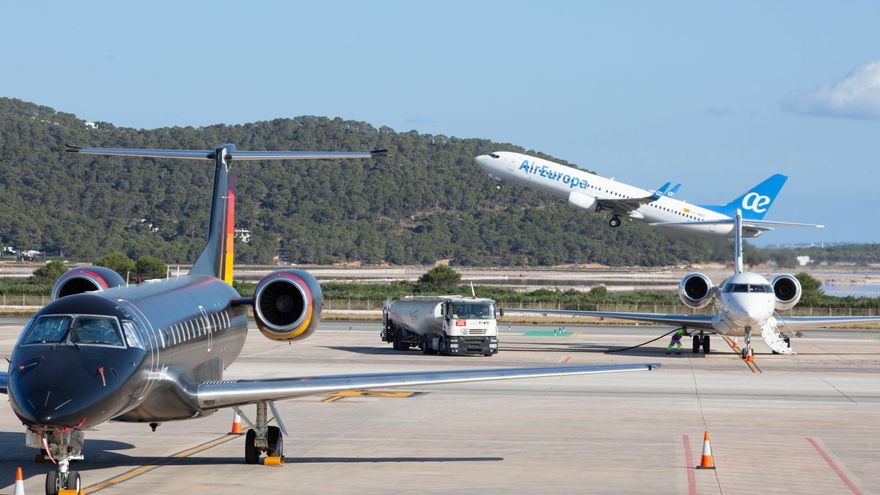There was a time when the term coronavirus was only used in scientific and health circles, and when Ibiza airport routinely surpassed its own annual traffic figures in a seemingly never-ending race.. . However, that was cut short last year, when Spain was confined in mid-March, bringing the economy to a halt for months. The lingering effects of this health crisis are evident in every economic sector. And they are more than evident in air transport, which is critical to tourism.
A sample is that Ibiza’s terminal of es Codolar lost an average of 9,844 passengers per day in eleven months, from January to November, compared to 2019 (the previous year before covid-19), bringing a total of negative balance of 3,287,936 million users in that time period.
This is a shocking figure for a sector that has historically fluctuated between very slight growth and decline. But even so, statistics do not lie.
Between January and November of this year, Ibiza airport received or discharged an average of 13,963 passengers daily
Thus, from January to November of this year, Aeropuertos Españoles y Navegación Aérea (AENA) counted 4,663,923 passengers in Ibiza, compared to 7,951,859 in the same period of 2019. That is an abnormally large drop of 42.3 percent, which illustrates the economic impact of covid.
However, the count can be done in another way: from January to November of this year, Ibiza airport received or discharged an average of 13,963 passengers daily. In the same months of 2019, the figure nearly doubled to 23,807 daily travelers.
As is natural, this precipitous decline in activity is related to the flight reductions that airlines have been forced to implement as a result of mobility restrictions, which has resulted in a 20.3 percent decline in aircraft operations in Ibiza this year, with December still to be counted.
For the full article, please visit Diario de Ibiza website here.


